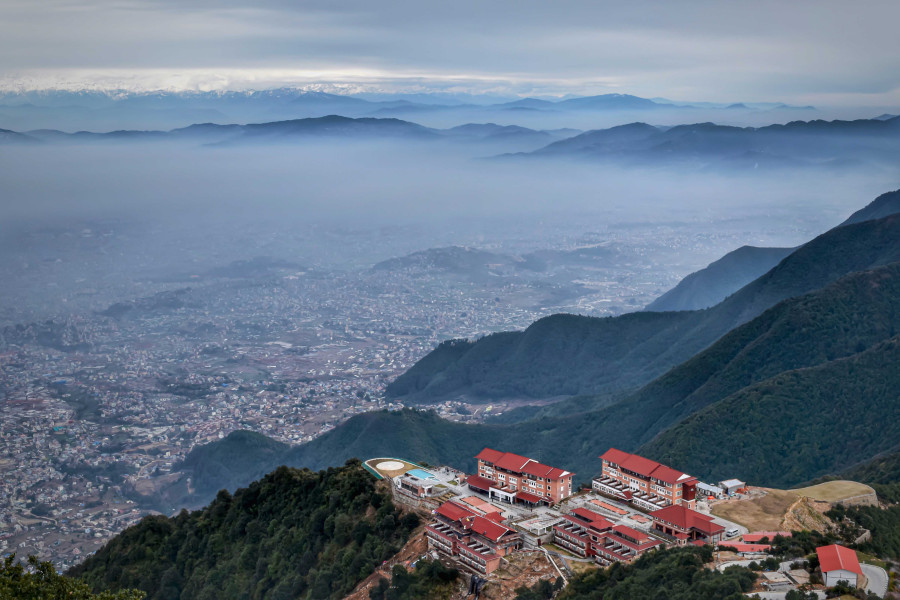Money
Tourism still top attraction for foreign investors despite virus crisis
Hotels, resorts and restaurants accounted for two-thirds of the investment pledges in the last five months.
Prithvi Man Shrestha
Nepal's tourism may be down and out because of the coronavirus, but it is still the best bet for foreign investors.
According to the Department of Industry, more than two-thirds of the foreign investment pledges received in the five-month period ended November 8 were in hotels, resorts and restaurants.
The tourism sector accounted for Rs13.8 billion, or 72 percent of the total FDI commitments worth Rs19.07 billion.
“Most of the promised investment is in the hotel, resort and restaurant sector,” said Binod Khadka, information officer at the Department of Industry. “Despite the devastating impact of the pandemic on Nepal's tourism industry, foreign investors may have seen prospects for growth in the long term.”
Since the Covid-19 outbreak began, the tourism industry has lost billions of rupees in foreign exchange earnings, and tens of thousands of people have lost their jobs.
According to Khadka, another reason why investment pledges have spiked is that potential investors have come forward only lately as they were immobilised towards the end of the last fiscal year by the virus lockdown and travel restrictions.
“This does not mean that they have to invest in Nepal immediately. They can make commitments now and invest later, once the situation comes under control,” said Khadka.
FDI pledges in the sector have swelled at a time when tourism entrepreneurs don't see any hopes of an early recovery.
“Our estimate is that it will take at least two years for the tourism sector to recover once a treatment or vaccine against Covid-19 becomes available,” said Binayak Shah, first vice-president of Hotel Association Nepal.
Considering the impact of the pandemic on the tourism industry, it has been prioritised by the government for injection of working capital at a low interest rate.
A survey report released by Nepal’s central bank in early August shows that the four-month-long lockdown imposed by the government forced hotels and restaurants to lay off 40 percent of their employees. Pay cuts in the industry averaged 36.4 percent.
A study entitled Rapid Assessment of the Social and Economic Impacts of Covid-19, commissioned by the UN Development Programme in Nepal and conducted by the Institute for Integrated Development Studies, said with international travel restrictions and fall in discretionary disposable incomes worldwide, tourism receipts in Nepal are projected to fall by 60 percent in 2020, resulting in a loss of foreign currency earnings worth $400 million.
Despite such a gloomy projection, the level of foreign investment pledges in the sector has surprised even tourism insiders.
“I don’t think they made these investment pledges with the intention of bringing money into Nepal immediately, seeing how the existing hotels and restaurants are suffering immensely with no tourists amid the pandemic,” said Shah.
“We have to see whether they are serious investors. I don’t think any serious investor would be willing to invest, particularly in the tourism sector, in the current situation.”
Shah thinks that many investors who had begun the registration process before the pandemic began might have concluded it recently, resulting in an increase in investment pledges. But he agrees that tourism in Nepal has great promise even though it is severely distressed now because of the virus.
Former chief executive officer of the Nepal Tourism Board, Deepak Raj Joshi, agrees. “I think foreign investors are not pledging investment by looking at today’s situation but the future,” said Joshi, who is currently coordinator of the Tourism Recovery Task Force, a joint initiative of the public and private sectors to rescue tourism from the pandemic.
“Tourism stakeholders globally consider that there can be revenge travel (travel to make up for not being able to travel previously) in 2021 if a vaccine is found this year. Nepal can benefit from such a trend as it can offer less crowded, nature oriented travel opportunities," said Joshi.




 9.83°C Kathmandu
9.83°C Kathmandu















